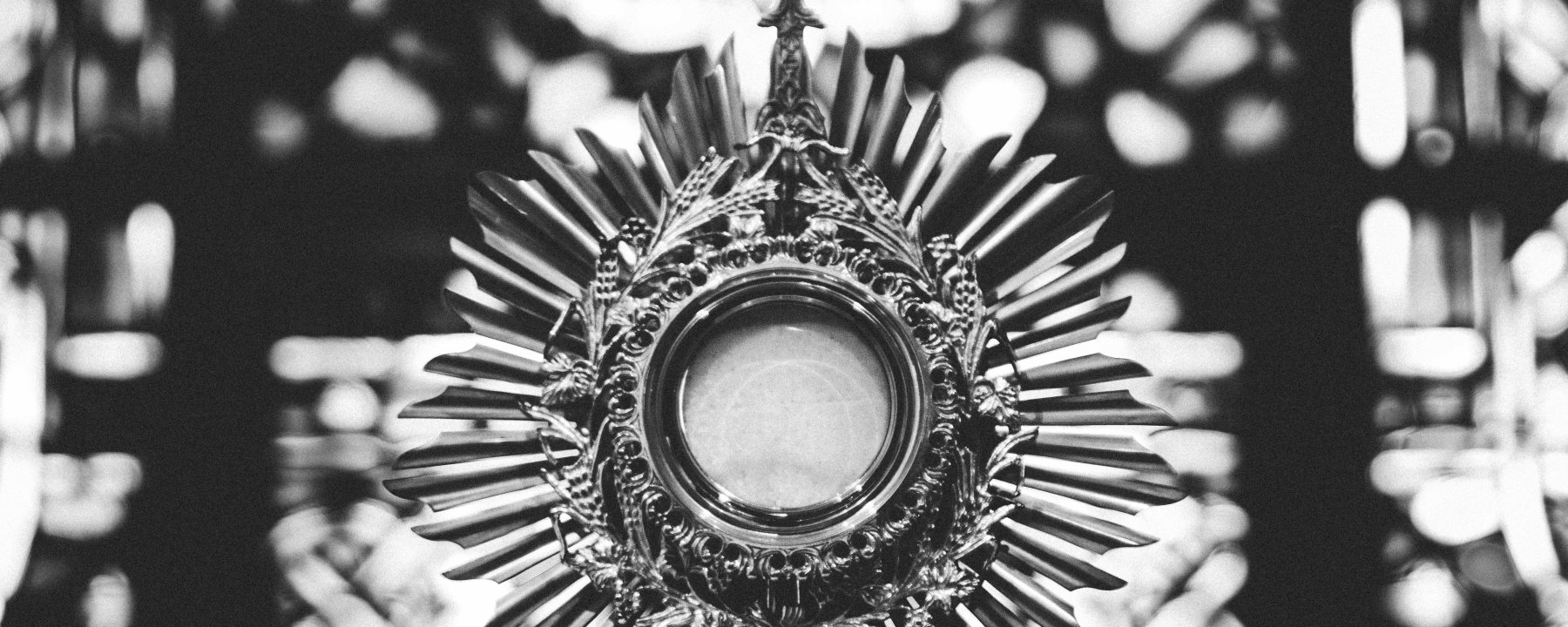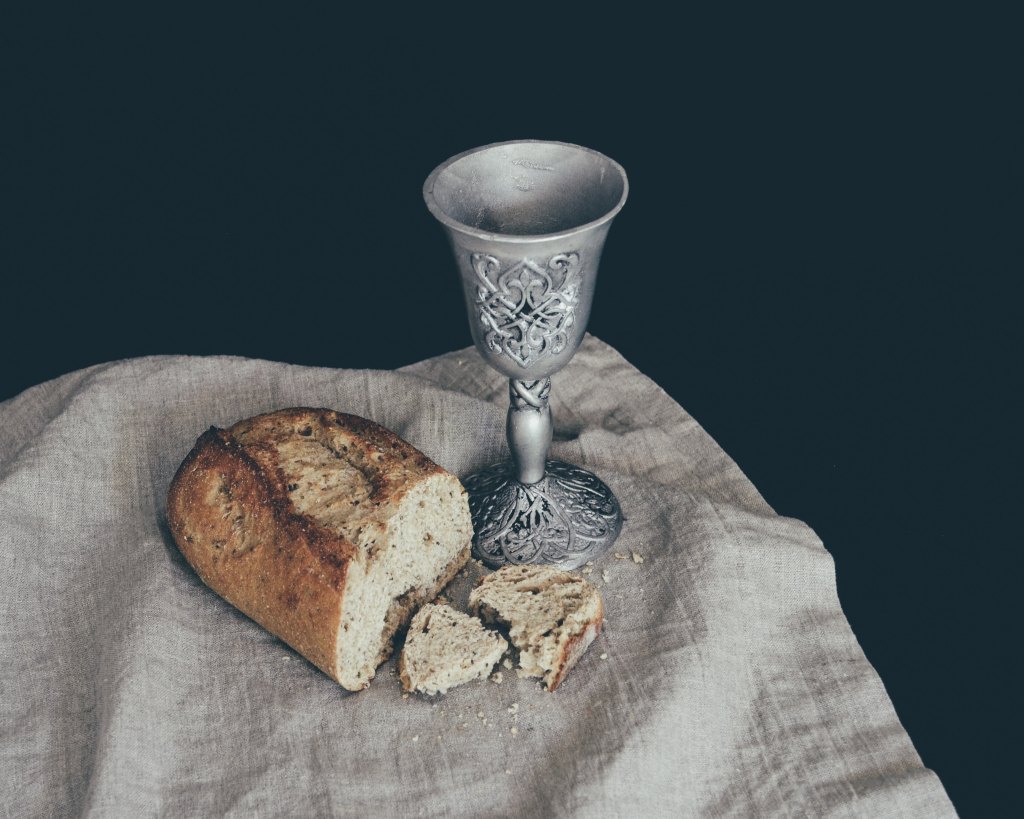True Life

Continuing my six-week online course on ecclesiology, the study of the Church, my post this week is my assignment for unit two on worship. Before I get to that, I just wanted to share that, so far, the material in the course is giving a lovely emphasis on gift. As an aside, may I ask you, “In your life, what is not a gift?” First of all, there is your life itself: your existence is a gift given by God. Everything that you are and have is given by God. Not recognizing or accepting this rendors us something like failures. If we live our lives and interact with others as though our lives and their lives are not gifts, then we are living a lie and there is much suffering in being deceived.
But that’s totally getting off the subject of this week’s assignment and post! (Well…okay, not totally.) Anyway, the assignment question is kind of technical so I will start with it and then follow with my response:
In Ecclesia de Eucharistia 22, Pope St. John Paul II links the Eucharist to the Church’s “mission,” which he describes as being “a ‘sacrament’ for humanity.” Explain what he means by this, paying particular attention to one or more of the scriptural passages he alludes to in the section.

God created human beings to be united to Him in love, sharing eternally in the divine life, and so God wills for each and every one of us to be saved from falling away from Him. That’s why Christ came, both fully human and fully divine, to take away our sins that divide and scatter us, saving humankind by uniting us intimately with God’s love. The inexhaustibly generous, self-giving love of God culminates and is made manifest by Christ’s sacrifice on the Cross—the total gift of Himself. But, how does humankind receive such a gift?
Through the Eucharistic Liturgy of the Church, Christ’s sacrifice is made visible and perpetually present to us—God gifts Himself to us by coming down upon the altar in the hands of His priest and we receive Him. In the Most Blessed Sacrament, we receive the visible sign of the invisible reality of God’s love for humankind and by God’s grace achieve unity with Christ—and through Him to the Father and the Holy Spirit, to God who is the source of our loved lives. Through reception of the Body, Blood, Soul, and Divinity of Christ in the Eucharist, human beings have true life, because union with God is our reason for being. As St. John Paul II quoted in Ecclesia de Eucharistia, Jesus said, “He who eats me will live because of me” (John 6:57). Through the Eucharist, Christ is not only with us, but within us. “Abide in me, and I in you” (John 15:4). This eternal abiding in divine love is Christ’s mission, God’s will for all humankind.
The mission of Christ is the mission of the Church, culminating and being made manifest in the Eucharist. For this reason, the Church Herself is like a sacrament for humanity, “a sign and instrument both of a very closely knit union with God and of the unity of the whole human race” (Lumen Gentium, 1). Christ said, “As the Father has sent me, even so I send you.” We who graciously receive the gifted sacrament of God’s love are sent forth to profoundly, perpetually, and particularly love as God loves in the world: loving God as the source of all love and life, loving ourselves and our fellow human beings as God’s images, and loving the goodness of God’s Creation. God transforms us to live and love as Christ, and therefore to be, not only a sign of true humanity, but an instrument of God’s grace to effect that communion of Man and God that makes each and every human being truly, fully, and gloriously alive.
© 2019 Christina Chase
Featured image Photo by Laura Allen on Unsplash
Photo by Debby Hudson on Unsplash
Christina Chase View All
Although crippled by disease, I'm fully alive in love. I write about the terrible beauty and sacred wonder of life, while living with physical disability and severe dependency. A revert to the Catholic faith through atheism, I'm not afraid to ask life's big questions. I explore what it means to be fully human through my weekly blog and have written a book: It's Good to Be Here, published by Sophia Institute Press.

That word ‘Glory’ is one I’m circling these days. The man I’m writing about had a motto – from dust, through grace, to glory. Shades of Ash Wednesday, Hannah’s song, the Magnificat … then a sentence I read this evening: ‘glory is the aspect of God’s being that makes it categorically different from ours.’ That’s from Abbot Erik Vardon’s ‘The Shattering of Loneliness.’ If it’s not published over there it should be! He leads the Trappist Abbey in England; there are others in Wales, Scotland and Ireland. Have fun with Ecclesia de Eucharistia! WT.
LikeLike
Glory… Makes me think of Shekinah, cloud of glory, divine dwelling. Who can imagine what real glory is like? Pax Christi
LikeLike